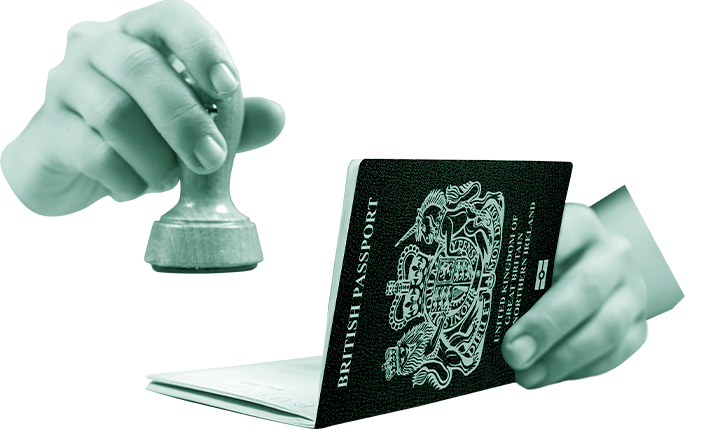Let's Talk

Need Help Urgently?
Call our 24 hour rapid response team now on 0333 311 1090
Request a callback
"*" indicates required fields


Sponsor licence revocation is a serious matter that can have severe consequences for both the company and its sponsored workers. The Home Office, which is responsible for immigration control in the UK, conducts regular visits to sponsors to ensure they are meeting the required standards. These visits can happen anytime and assess various aspects of sponsor compliance. A sponsor licence can be revoked for several reasons. One common reason is non-compliance with the sponsor’s duties, such as poor record keeping or failure to notify the Home Office of changes in circumstances. For example, sponsors must keep accurate and up-to-date records of their sponsored workers, including their personal details, contact information, and absences from work. Failure to maintain these records can lead to a sponsor licence revocation.
Another reason for revocation is fraudulent behaviour. Suppose the Home Office suspects a sponsor of acting fraudulently, such as employing workers without the correct visa or providing false information in the sponsor licence application. In that case, they can revoke the sponsor licence. Revocation can also occur if a sponsor’s licence is downgraded from an A-rating to a B-rating and the sponsor fails to improve and rectify their compliance issues.
When a sponsor licence is revoked, the impact is significant. The company will no longer be able to sponsor workers, which can disrupt its operations and reputation. The company will also be unable to reapply for a sponsor licence for one year from the date of revocation. Additionally, if the licence was revoked due to employing workers illegally, the company may face fines.
In addition to sponsor licence revocations, sponsor licence refusals are another challenge that companies may face. A sponsor licence refusal means that the company’s application to become a licensed sponsor has been rejected by the Home Office.
There can be several causes for sponsor licence refusals. One common reason is the failure to meet the requirements and standards set by the Home Office. This can include not providing accurate and complete information in the sponsor licence application, not demonstrating the genuine need to employ migrant workers, or not having appropriate HR policies and procedures in place.
To address sponsor licence refusals, companies must carefully review the reasons for the refusal and take appropriate action. This may involve implementing an action plan to rectify any identified issues or gaps in compliance. The action plan should outline the steps the company will take to meet the sponsor duties and ensure compliance with immigration control. It is essential to understand the requirements and expectations of the Home Office when applying for a sponsor licence. Companies should seek professional advice and assistance to navigate the application process and ensure all necessary documentation and information are provided accurately and comprehensively. Immigration lawyers familiar with sponsor licence applications can guide companies in preparing a strong application and addressing any concerns raised by the Home Office.
To maintain a sponsor licence, companies need to renew their licences periodically. Prior to April 6,
2024, sponsor licences were valid for four years and required renewal. However, the renewal
process has changed, and sponsor licences are now automatically extended to expire in 10 years
from the initial grant date.
Although there is no longer a renewal application process, it is crucial for companies to ensure ongoing compliance with their sponsor duties and obligations. The Home Office may conduct
compliance visits to assess a sponsor’s adherence to immigration rules and regulations. During these visits, the Home Office may review the sponsor’s record-keeping practices, HR policies, and compliance with reporting requirements.
To ensure a smooth sponsor licence renewal process, companies should maintain accurate and up-
to-date records of their sponsored workers, including their personal information, contact details,
and employment history. It is also essential to have robust HR policies and procedures in place to
manage sponsored workers, including monitoring attendance and managing annual leave.
Companies should familiarise themselves with the Sponsor Management System (SMS), which is the
online portal for managing sponsor licence-related tasks. The SMS allows companies to assign
Certificates of Sponsorship (CoS) to sponsored workers, report changes in circumstances, and
maintain compliance with reporting requirements.
In preparation for a compliance visit, companies should review their HR policies, record-keeping
practices, and reporting procedures to ensure they meet the requirements set by the Home Office. If
any areas of non-compliance are identified, companies should take corrective measures and address
the issues promptly.
By maintaining compliance and adhering to their sponsor duties, companies can ensure a smooth
sponsor licence renewal process and avoid the potential consequences of non-compliance, such as
licence revocation or downgrading.
When applying for a sponsor licence, companies have the option to use the Pre-Licence Priority Service, which provides expedited processing of their application. This service aims to reduce the waiting time for a decision on the sponsor licence application.
Using the Pre-Licence Priority Service can be beneficial for companies that require a sponsor licence urgently to meet their business needs. It allows them to receive a faster decision and start sponsoring migrant workers sooner.
To use the Pre-Licence Priority Service, companies must first book an initial consultation with the Home Office. During this consultation, the company will discuss their specific sponsorship requirements and receive guidance on the sponsor licence application process. Following the initial consultation, companies can proceed with the sponsor licence application, ensuring all necessary documentation and information are provided accurately and comprehensively. It is crucial to meet the requirements and guidelines set by the Home Office to increase the chances of a successful application.
By using the Pre-Licence Priority Service, companies can expedite the sponsor licence application process and receive a decision in a shorter timeframe. This allows them to start sponsoring migrant workers sooner and meet their business needs more efficiently.
During a compliance visit or when reviewing a sponsor licence application, the Home Office may identify discrepancies or inconsistencies in the information provided by the company. These discrepancies can include false or inaccurate information, failure to meet sponsor duties, or non-compliance with immigration rules and regulations.
If the Home Office finds discrepancies, further enquiries may be conducted to gather additional information and evidence. The purpose of these enquiries is to assess the extent of the discrepancies and determine whether there was intentional deception or non-compliance.
The Home Office may request additional documentation, conduct interviews with key personnel, or visit the company’s premises to gather evidence. It is essential for companies to cooperate fully with the Home Office during these enquiries and provide accurate and complete information. Based on the findings of the enquiries, the Home Office will make a decision regarding the sponsor licence. If the discrepancies are deemed significant and intentional, the sponsor licence may be revoked. If the discrepancies are deemed minor or unintentional, the Home Office may provide guidance on rectifying the issues and maintaining compliance.
It is important for companies to be proactive in addressing any discrepancies identified by the Home Office. This may involve providing explanations, additional evidence, or implementing corrective measures to ensure compliance with sponsor duties and immigration rules.
If a sponsor licence has been revoked, it can have significant consequences for both the company and its sponsored workers. The first step in such a situation is to seek legal advice from an immigration lawyer specialising in sponsor licence revocations.
While there is no right of appeal against a sponsor licence revocation, companies can explore other options, such as pursuing a judicial review. A judicial review is a legal process that involves challenging the lawfulness or fairness of a decision made by a public body, such as the Home Office. To initiate a judicial review, companies must demonstrate that the Home Office made a mistake in revoking the sponsor licence or that the decision was unfair or unlawful. This requires gathering evidence and presenting a strong case to the court.
The judicial review process can be complex and time-consuming, requiring the expertise of an immigration lawyer. The lawyer can guide companies through the process, assess the merits of the case, and provide representation in court.
In addition to pursuing a judicial review, companies can also seek legal advice on other available options, such as reapplying for a sponsor licence after the cooling-off period or exploring alternative immigration routes.
It is crucial for companies to act promptly and seek legal advice to understand their rights and options following a sponsor licence revocation. An immigration lawyer can provide guidance on the best course of action based on the specific circumstances of the case.
If a sponsor licence has been revoked or downgraded, companies may wonder if there is any recourse available to challenge the decision. While there is no right of appeal against a sponsor licence revocation or downgrading, there are other options to consider.
One option is to pursue a judicial review, which involves challenging the lawfulness or fairness of a decision made by the Home Office. To initiate a judicial review, companies must demonstrate that the decision was unfair, unlawful, or made in error. This requires gathering evidence and presenting a strong case to the court.
Another option is to seek legal advice from an immigration lawyer specialising in sponsor licences. The lawyer can assess the merits of the case, provide guidance on available options, and assist with pursuing the most suitable course of action.
It is important to note that pursuing a judicial review can be a complex and time-consuming process. It requires the expertise of an immigration lawyer to navigate the legal procedures and present a convincing case.
While there is no guarantee of success, pursuing a judicial review or seeking legal advice can provide companies with the opportunity to challenge the decision and explore alternative solutions. The specific circumstances of each case will determine the best course of action, and an immigration lawyer can provide tailored advice based on the individual situation.
If a UK sponsor withdraws a Certificate of Sponsorship (CoS), it can have significant implications for the sponsored worker. The CoS is a document issued by the sponsor to enable the worker to apply for a visa or extend their stay in the UK.
When a sponsor withdraws a CoS, it means that the sponsor no longer wishes to sponsor the worker or has decided to terminate their employment. This can be due to various reasons, such as changes in business circumstances or the worker’s performance.
In such a situation, the sponsored worker will need to explore alternative sponsorship options or make arrangements to leave the UK. This may involve finding a new sponsor who is willing to issue a CoS or considering other immigration routes that allow them to remain in the UK.
It is important for sponsored workers to be proactive in addressing the withdrawal of a CoS and seeking alternative sponsorship or immigration solutions. Legal advice from an immigration lawyer can provide guidance on the available options and help navigate the complexities of the immigration system.
What happens if my university withdraws my sponsorship?
If a university withdraws sponsorship for a sponsored worker, it can have significant consequences for both the worker and their immigration status. Universities often act as sponsors for international students or academic staff who require sponsorship to study or work in the UK.
When a university withdraws sponsorship, it means that the university is no longer willing or able to continue sponsoring the worker. This can be due to various reasons, such as the completion of a course of study or changes in funding or staffing.
In such a situation, the sponsored worker will need to explore alternative sponsorship options or make arrangements to leave the UK. This may involve finding a new sponsor, such as an employer or another educational institution, who is willing to issue a Certificate of Sponsorship (CoS) or considering other immigration routes that allow them to remain in the UK.
It is crucial for sponsored workers to be proactive in addressing the withdrawal of sponsorship from their university and seeking alternative sponsorship or immigration solutions. Legal advice from an immigration lawyer can provide guidance on the available options and help navigate the complexities of immigration law.
Common Reasons for Sponsor Licence Revocation
There are several common reasons why sponsor licences can be revoked. These reasons often relate to non-compliance with sponsor duties and requirements set by immigration law.
One common reason for sponsor licence revocation is poor record keeping. Sponsors are required to maintain accurate and up-to-date records of their sponsored workers, including their personal information, contact details, and employment history. Failure to meet these record-keeping requirements can lead to a sponsor licence revocation.
Another reason for revocation is the employment of illegal workers. Sponsors must ensure that their sponsored workers have the appropriate permission and right to work in the UK. Employing workers
without the correct visa or work authorisation can result in a sponsor licence revocation.
Failure to meet other sponsor duties, such as reporting changes in circumstances or ensuring compliance with immigration rules, can also lead to revocation. Sponsors must notify the Home Office of any changes related to their sponsored workers or their business operations.
It is essential for sponsors to understand their duties and responsibilities and ensure ongoing compliance to avoid the revocation of their sponsor licences. Regular review and monitoring of HR policies, record keeping, and reporting procedures can help prevent the common reasons for revocation.
Consequences of Sponsor Licence Revocation
The consequences of sponsor licence revocation can be severe for both the company and its sponsored workers. The company will no longer be able to sponsor workers, impacting its ability to operate and potentially leading to reputational damage. The company will also be unable to reapply for a sponsor licence for one year, further impacting its business. Sponsored workers may face curtailment of their leave and will need to find alternative sponsorship or leave the UK.
What happens if my sponsor licence is revoked?
If your sponsor licence is revoked, it means that you are no longer able to sponsor migrant workers.
This can have significant consequences for the workers you have sponsored, as their leave may be curtailed. They will be given a grace period of 60 days to find alternative sponsorship or leave the UK. During this period, they can apply for other types of permission to stay, but the timeframe may be challenging. If they remain in the UK beyond the grace period, they will be considered to be staying illegally and may face removal.
Can I appeal a licence revocation?
There is no right of appeal against a sponsor licence revocation. However, companies can pursue a judicial review if they believe that the Home Office decision was unfair or unlawful. A judicial review involves challenging the lawfulness or fairness of a decision made by a public body. It requires gathering evidence and presenting a strong case to the court. Seeking legal advice from an immigration lawyer specialising in sponsor licences can help companies understand their options and navigate the judicial review process. The court will make a final decision based on the evidence
presented.
What is the difference between suspension and revocation?
Sponsor licence suspension and revocation are both actions taken by the Home Office in response to non-compliance with sponsor duties. Suspension occurs when the Home Office believes that a sponsor poses a threat to immigration control and needs further investigation. During suspension, a sponsor is temporarily unable to issue new Certificates of Sponsorship but can retain their sponsor’s licence. Revocation, on the other hand, is the permanent withdrawal of a sponsor’s licence due to serious or repeated non-compliance. Revocation means that the sponsor can no longer sponsor migrant workers and must cease their sponsorship activities. Both suspension and revocation can occur following compliance visits or as a result of other non-compliance issues identified by the Home Office.
How long does a sponsor licence last?
A sponsor licence in the UK does not have a fixed expiry date. Previously, sponsor licences were valid for four years and required renewal. However, this requirement was abolished on April 6, 2024.
Instead, all sponsor licences now have an automatic extension, and their expiry dates have been extended to 10 years from the original date of issuance. During this extended period, sponsors must ensure that they continue to meet their sponsorship
duties and comply with immigration rules. The Home Office may conduct compliance audits to ensure ongoing compliance. If a sponsor fails to meet their duties or poses a threat to immigration control, their licence may be downgraded or revoked. Here is a summary of the key points regarding the duration of a sponsor licence:
Duration of Sponsor Licence
Expiry Date | Automatically extended to 10 years from original date of issuance
Renewal Requirement | No longer required
Compliance Audits | Conducted by the Home Office to ensure ongoing compliance
We are always happy to talk about any legal concern you may have regarding criminal law matters.
Get In Touch

Call our 24 hour rapid response team now on 0333 311 1090
"*" indicates required fields
"*" indicates required fields